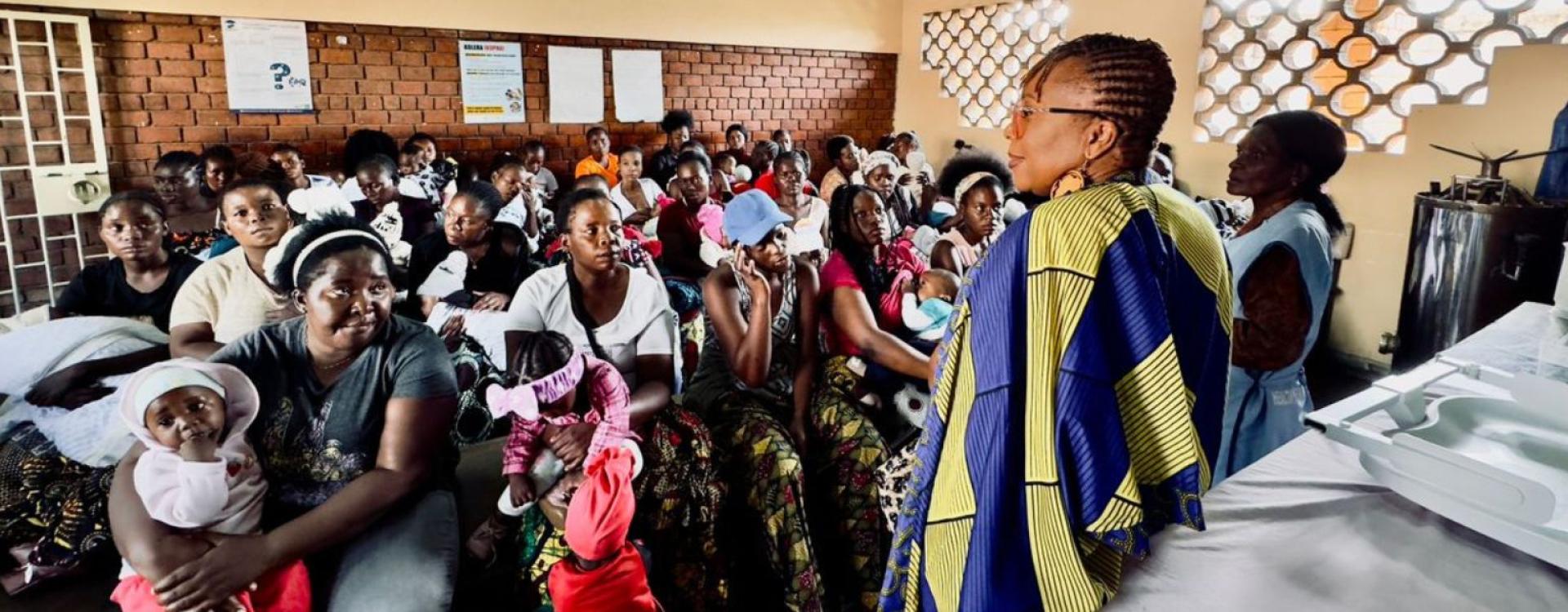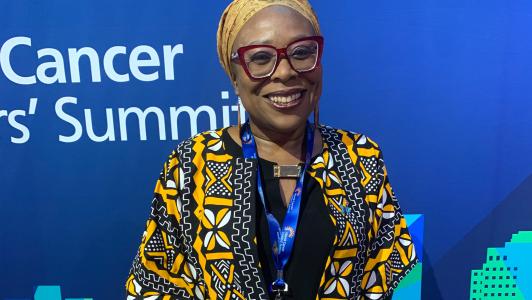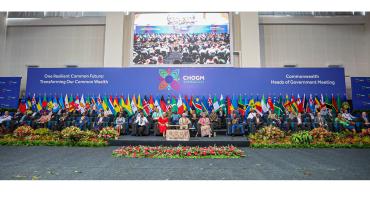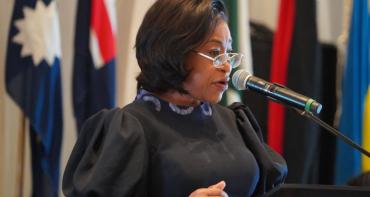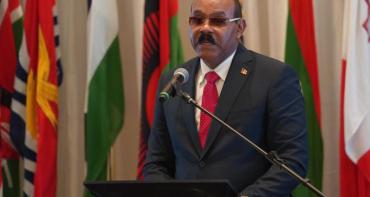Shocked and in denial, Karen, the mother of two young daughters faced the daunting reality of her diagnosis. However, she was fortunate to have access to free and timely treatment. Three months later, Karen, the convenor of Zambia’s Fashion Week, was cancer-free.
Zambian broadcaster Karen Nakawala was diagnosed with cervical cancer four years ago. She survived, though many friends she made didn’t. Today she’s on a mission to convince girls across the world to get the HPV vaccine.
Millions of women across Commonwealth countries are not as lucky as Karen. Few healthcare institutions have adequate facilities to treat cervical cancer, and where treatment is available, many cannot afford it. This trend has contributed significantly to the spike in cervical cancer mortality rate with a prediction that, if nothing changes, one woman in the Commonwealth could die every three minutes by 2030.
This alarming statistic has prompted the Commonwealth Secretary-General Patricia Scotland KC to prioritise elimination efforts.
At the House of Parliament in London in 2022, she said:
"Cervical cancer is a disease of deep inequity. About 90% of new cases and deaths occur in low and middle-income countries, where screening and treatment are not widely available. Cross-sectoral collaboration is key to addressing complex access inequities to prevent this unnecessary tragedy."
Karen’s narrow escape strengthened her resolve to close this gap through advocacy.
Karen said:
“Raising awareness about the importance of screening is one aspect of saving lives. However, my experience has taught me that we must do all we can to ensure that women can access treatment and that those who cannot pay for treatment do not die. This is what drives me and led me to partner with the Commonwealth”.
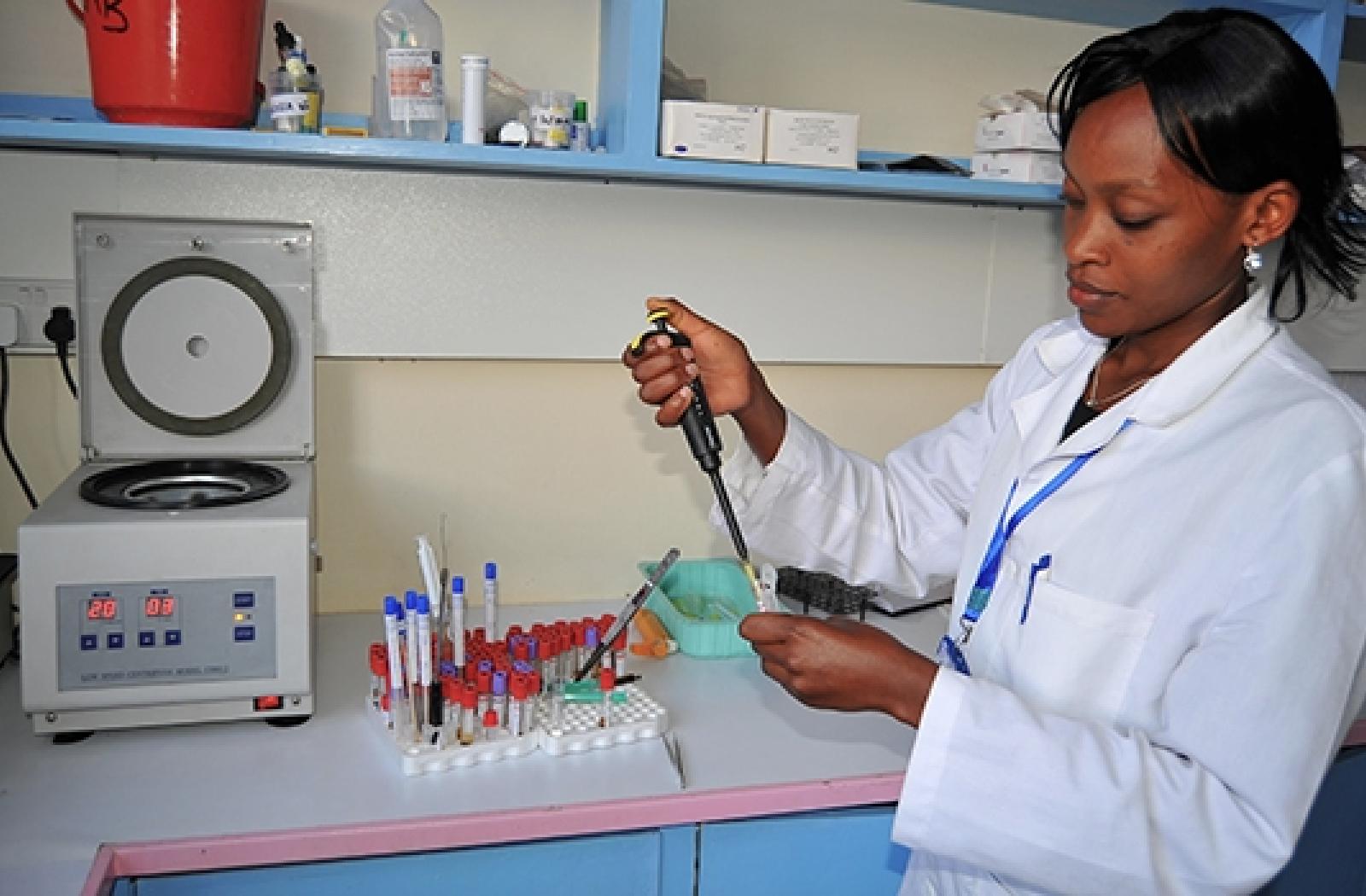
Commonwealth leaders commitment
At CHOGM 2022 in Kigali, Rwanda, Commonwealth leaders made a commitment to ensure that all girls between nine and 13 receive the human papillomavirus (HPV) vaccine by 2025 to prevent cancer. Another response was the launch of a multistakeholder task force in partnership with the Union for International Cancer Control.
For Karen, the launch of the Commonwealth International Taskforce on Cervical Cancer Elimination, comprising leading academics, medical professionals, young people, and practitioners, was pivotal:
"Almost everything I have done since 2021 is linked to my association with the Commonwealth and the honour of being the first cancer survivor on the task force. The Commonwealth was the first organisation to recognise me through the power of humanising the narrative and offering global platforms for me to influence change. Working together, we are seeing lifesaving changes”.
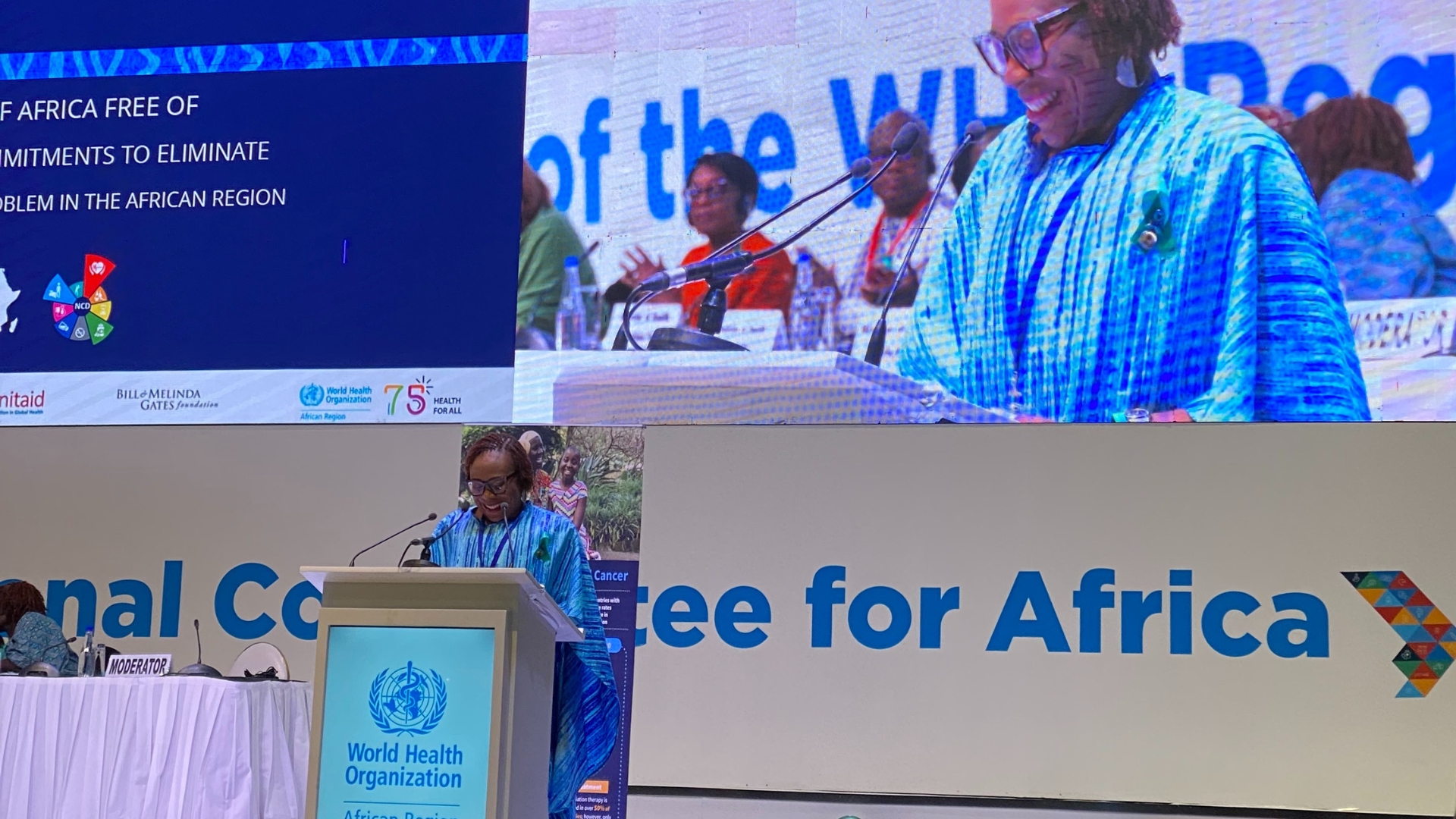
Speaking out against cervical cancer stigma
Karen spoke out against cervical cancer stigma at the United Nations General Assembly in 2021 and became a World Health Organization (WHO) advocate for cancer elimination. She is also the founder of Teal Sisters Foundation Zambia, a Facebook group with over 134,000-members, for survivors, caregivers and allies.
The Commonwealth International Taskforce on Cervical Cancer Elimination complements the Commonwealth's broader efforts to combat non-communicable diseases (NCDs) and the Commonwealth Lancet Oncology Commission, which was established to investigate cancer care in the Commonwealth.
Survivors like Karen shall also play a critical role in this year's Commonwealth London Global Cancer Week in November.
Towards a cancer-free Commonwealth
A cancer-free Commonwealth is a priority for CHOGM2024 in Samoa, where leaders will advocate for a reduction in NCD-related deaths, like cervical cancer. By amplifying survivors' voices and driving collaborative efforts, the Commonwealth and survivors like Karen are making progress towards building resilient health systems and a better, more equitable future for its citizens.
